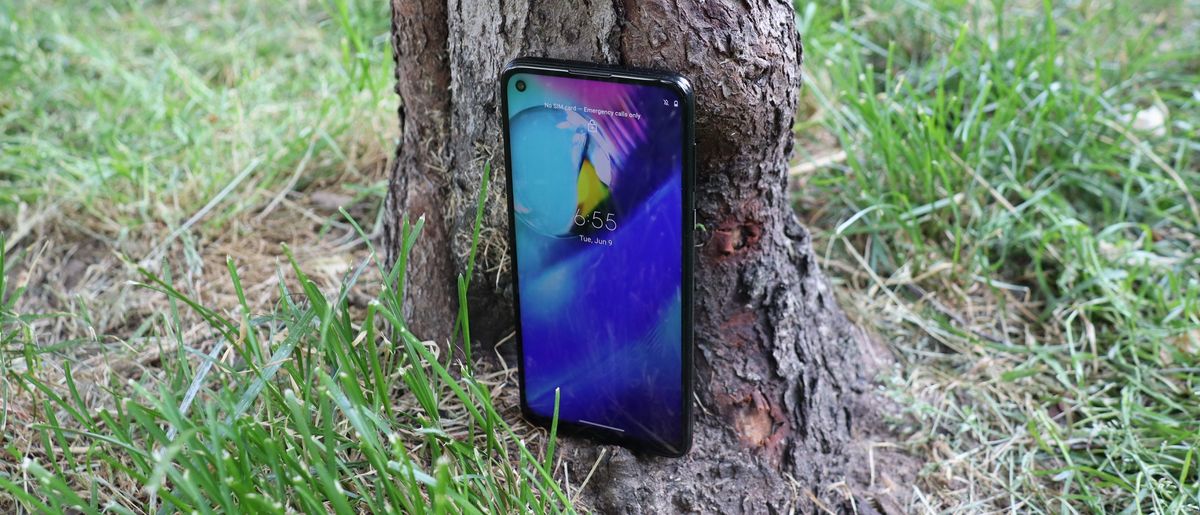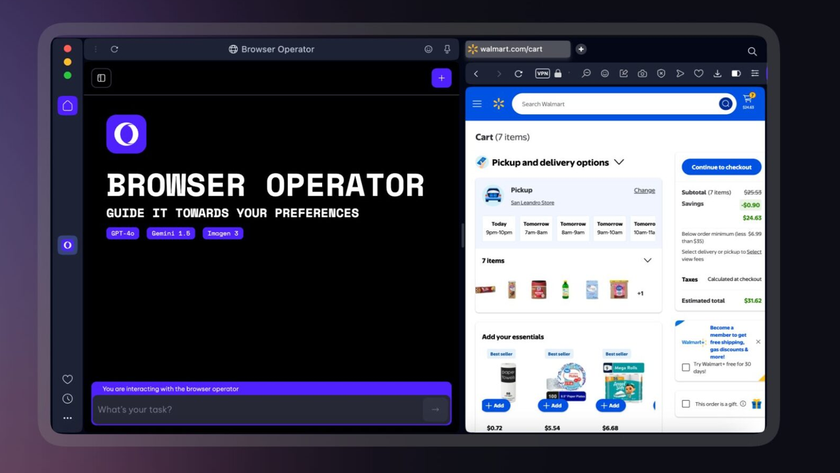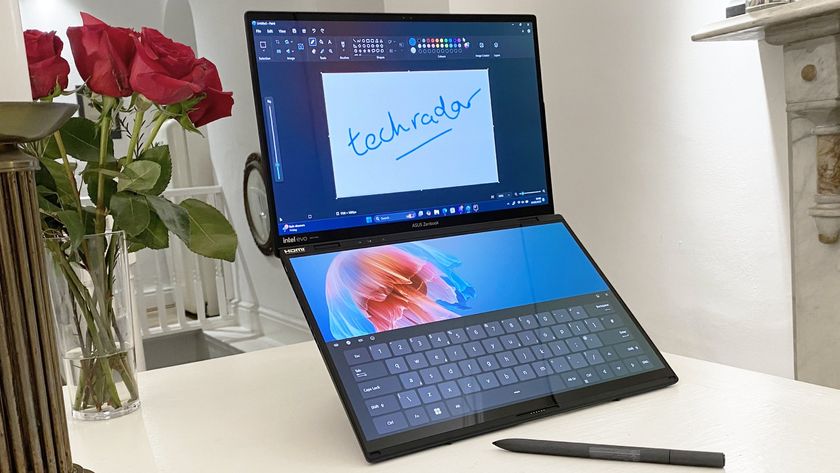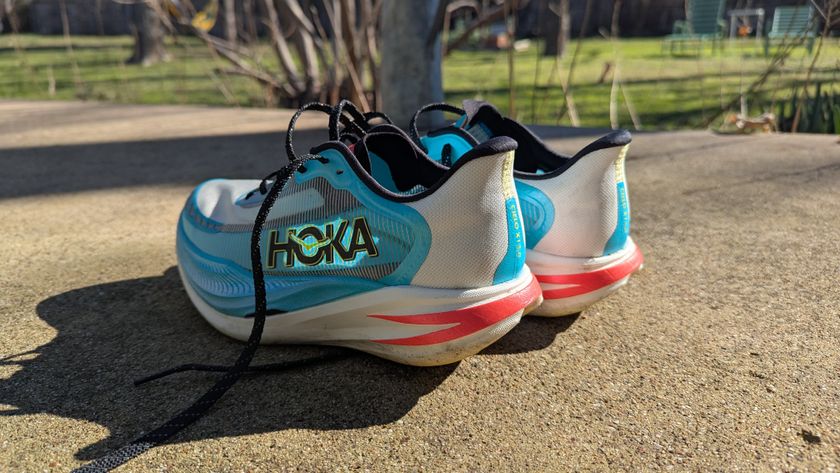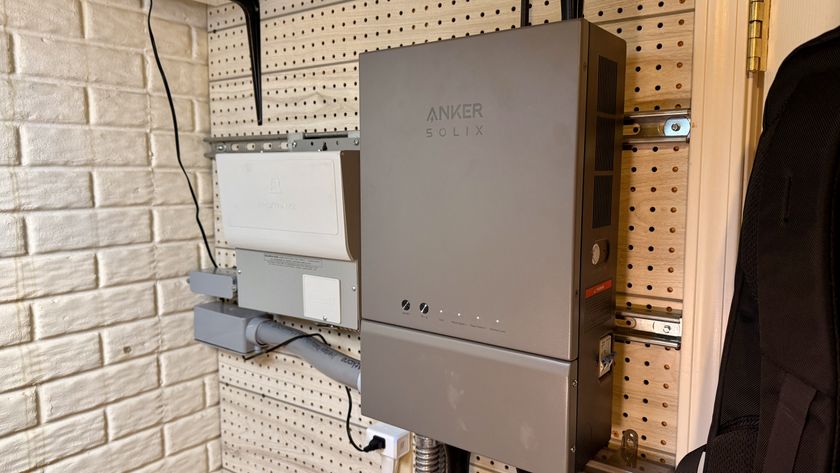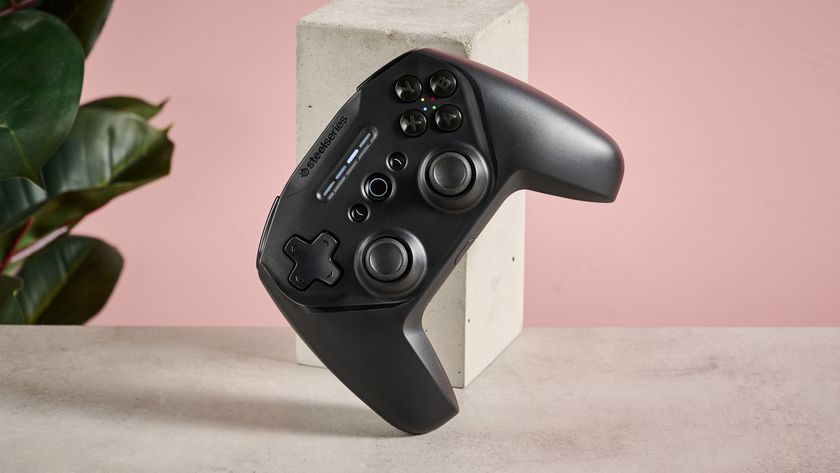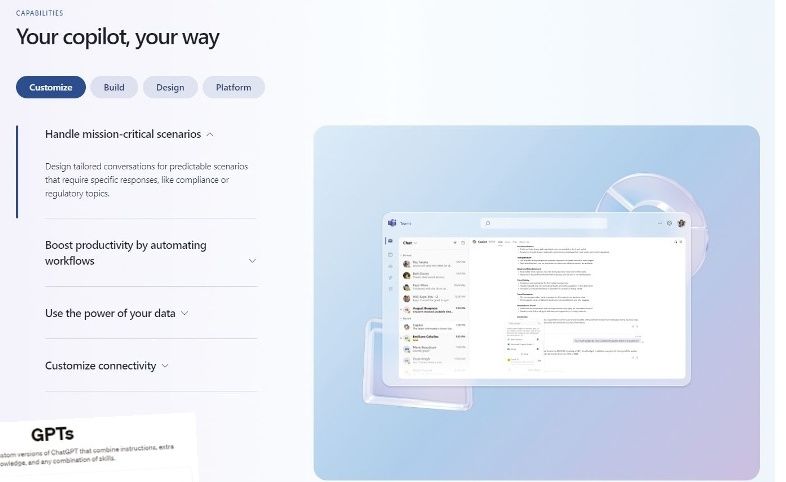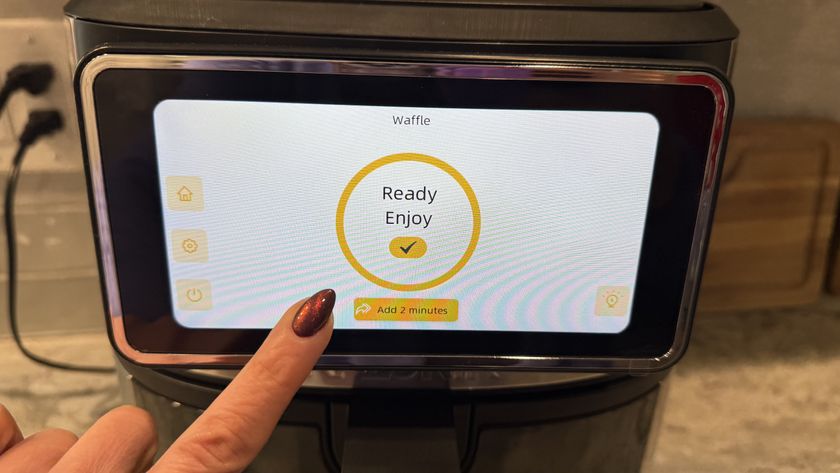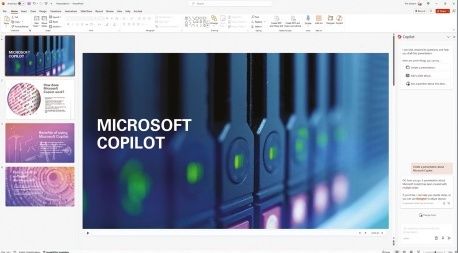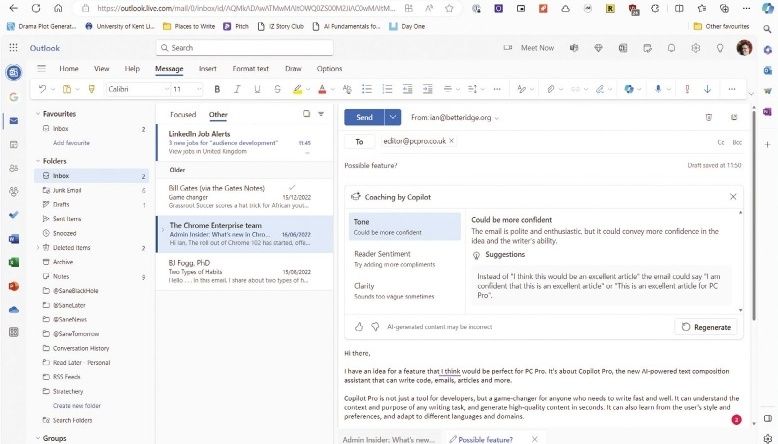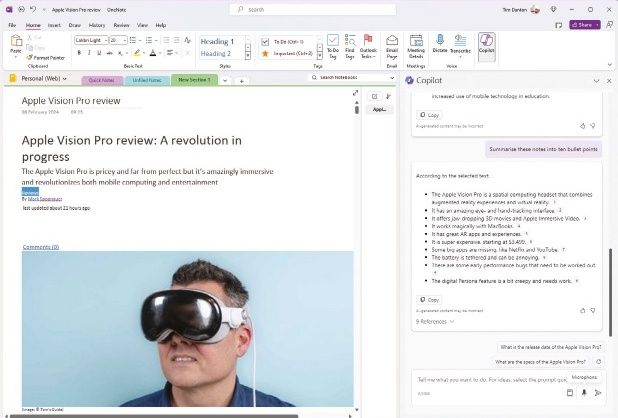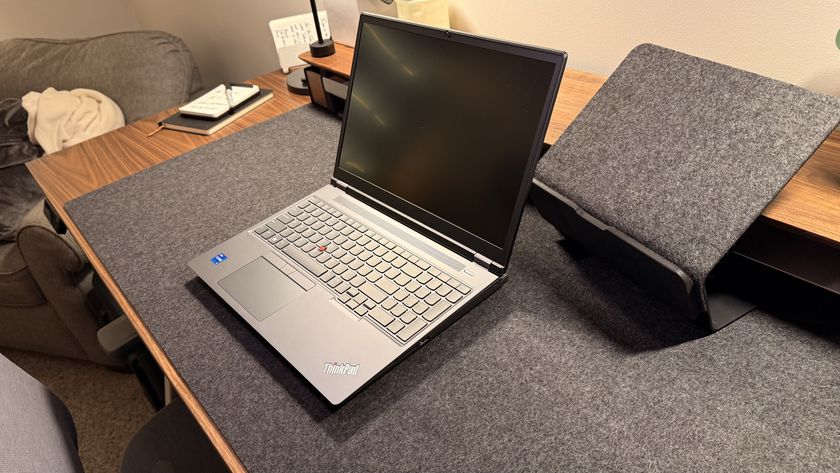TechRadar Verdict
The Moto G8 Power is a solid budget phone that performs better than its price would suggest. Motorola has added more cameras, and refined its look to mimic the flourishes of flagship smartphones, including smaller bezels and a punch-hole in the display for the selfie camera. Moto purists may be dismayed by the departure from the line’s signature design, but the phone’s performance, cameras, and extensive battery life should endear it to folks looking for a solid phone at a low cost.
Pros
- +
Extensive 5,000mAh battery
- +
Triple rear cameras
- +
Flagship-like looks
Cons
- -
Lacks telephoto lens
- -
Frustrating fingerprint sensor
- -
64GB storage is limited
Why you can trust TechRadar
Two-minute review
The Moto G8 Power – known as the Moto G Power in the US – is the latest version of Motorola’s G-series budget battery behemoth. And while it still lasts longer than other phones, this year’s iteration has also been upgraded with some perks that elevate it above its predecessors.
In short, it looks snazzier, it takes better photos, and it’s an all-around better-specced phone than many other budget handsets.
The G8 Power also features design touches more typical of flagship phones, like the punch-hole camera and multiple rear cameras, that make it look and feel a cut above other budget phones. While that means the G8 Power doesn’t have some Motorola design hallmarks, the resulting phone looks and feels more like a mid-range handset. And a 5,000mAh battery is always going to be handy.
The extensive battery life is just one of several standout specs that make the Moto G8 Power a more well-rounded budget phone than prior G-series Power handsets. Its 6.4-inch Full HD+ LCD display is sharp and colorful, its Snapdragon 665 chipset and 4GB of RAM handled everything we threw at it, and the three rear cameras have admirable range for a budget phone: the 16MP main camera performs admirably in daylight, the 8MP ultrawide lens permits zooming out, and the 2MP macro lens lets you capture photos of up-close subjects.
While all that raises it above other brands’ budget phones, the G8 Power also benefits from less internal competition. Unlike in previous years, when Motorola released its full suite of G-series phones at the same time, the company has been shrewder with its rollout of the G8-series phones, doling out a couple at a time in different regions.
The effect is that the G8 Power has more of an identifiable role in the lineup than just ‘the one with more battery’ – in the US, for example, it stands out as a more conventional option compared to the Moto G Stylus. But even between its siblings, we’d recommend the G8 Power anyway: it’s got all the right perks at an affordable price.
Of course, the G8 Power can be outdone – but you’d have to pay a significant amount more to outperform it with, say, the iPhone SE 2020, or to outshoot its cameras with the Google Pixel 3a.
Moto G8 Power price and release date
- Released on April 30, 2020
- Priced at $249 / £220 / AU$329
- Comes in two colors: Smoke Black and Capri Blue
The Moto G8 Power release date was originally set to be February 20 in the UK with a release window of ‘spring’ (Q1 2020) in the US, but with the coronavirus outbreak resulting in the cancelation of MWC 2020, at which Motorola was originally planning to unveil the phone, the launch was pushed back. The G8 Power was finally released in the US and other countries on April 30, 2020.
Keep in mind that, yes, the Moto G8 Power and Moto G Power are nearly identical phones – it’s just called the latter in the US. While that's a bit confusing, the phones are slightly different: in addition to main and ultrawide cameras, the Moto G8 Power has a telephoto 2x optical zoom rear camera while the Moto G Power has a macro lens. Also, the Moto G Power can connect to 5Ghz WiFi (aka 5G WiFi or 802.11ac), while the Moto G8 Power can only connect to 2.4Ghz spectrums.
The G8 Power is priced at $249 / £220 / AU$329, which makes it a bit cheaper than its sibling, the $299 (around £230, AU$440) Moto G Stylus. It’s unclear how that price will compare to the mainline Moto G8, so we’ll have to wait for official word before we can establish a pecking order in terms of pricing and features.
The Moto G8 Power comes in just two colors: Smoke Black and Capri Blue.
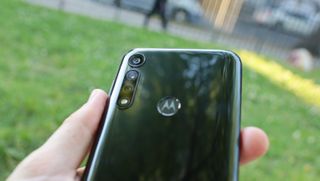
Design
- Abandons signature Moto look for flagship-like flourishes
- Punch-hole selfie camera, minimal bezel, vertical rear camera
- 3.5mm headphone jack
The G8 Power is one of the nicest budget phones we’ve seen in 2020, mainly thanks to deliberate design touches that bring it in line with pricier phones. While it’s not quite up to the level of polish of a premium phone – its plastic frame and back betray its budget status – the G8 Power nevertheless looks pricier than it is.
The G8 Power leaves behind the wide notch of its predecessor, the G7 Power, which had a chin so thick it accommodated a ‘Motorola’ name. The G8’s bezels are slimmer all around, and the front-facing camera has been moved to a much more svelte punch-hole in the top-left of the display.
The back of the phone diverges radically from prior Moto G-series handsets, which had kept the brand’s signature circular phone block; instead, the G8 Power has three cameras aligned vertically on the left side. The placement of the fingerprint sensor, however, remains the same: it’s located in the top-center under a Motorola ‘M’ logo – but be warned, as it can take a few tries before it registers your digit.
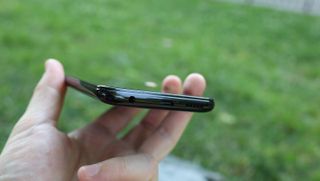
There’s a volume rocker toward the top of the right side, with a ridged lock button below it. The 3.5mm headphone jack has been moved to the bottom of the phone, to the left of the USB-C port; to the right of the port is thea speaker.
At 197 g, it’s not the lightest phone, but thanks to its aluminum frame the G8 Power feels more solid than expected for a budget handset. It doesn’t have an official dust- or water-resistant rating, but that’s not too surprising for an affordable phone.

Display
- 6.4-inch LCD Full HD+ display
- Punch-hole in top-left corner
- No in-screen fingerprint sensor
The Moto G8 Power’s 6.4-inch IPS LCD Full HD+ (2300 x 1080) display has a higher resolution than the 720p screen on the Moto G7 Power, and is suitable for everyday gaming and bingeing on movies and TV shows. It’s 0.2 inches larger than its predecessor’s display, too.
The display’s 19:9 aspect ratio isn’t the leanest among phones, with some taller handsets stretching to 20:9 and 21:9. That means the G8 Power is wider than, say, the flagship Motorola Edge Plus, although it’s not quite as wide as, say, the iPhone 11 Pro Max, ensuring that it sits easily in the hand.
The G8 Power’s screen is a little less sharp and vivid than OLED displays in a side-by-side test, and loses a little clarity when displaying darker color clusters (for example images containing browns and dark greens), which tend to blur together.
This is true even compared to the Motorola Edge Plus, despite both phones having Full HD+ resolution. On the other hand, the G8 Power’s LCD screen doesn’t have as warm a tint to it as the OLED screens we’ve compared it to.
The thinner bezels are what really make the G8 Power look more refined than its price tag would suggest, facilitating a 85.1% screen-to-body ratio, a clear upgrade over the G7 Power’s 77.1%.
The punch-hole in the screen is less obtrusive than a notch (at least in our opinion), and the display contours to the round corners of the phone’s frame, another departure from the squared-off screens on the G8 Power’s predecessors.

Cameras
- Triple rear cameras : 16MP main + 8MP ultrawide + 2MP macro
- Great daylight photos with sharp detail, though colors can wash together
- 16MP selfie camera is just fine
The Moto G8 Power improves on its predecessor in many ways, but perhaps most notable is the upgrade from a single rear camera to a trio that dramatically expands the phone’s photographic capability.
The 16MP main shooter feels similar to the one on its predecessor, and takes admirable photos in daylight, with sharp detail both up close and far away in the same shot – more so than the equivalent camera on the Motorola Edge Plus or iPhone 11 Pro Max, based on side-by-side comparisons of photos taken at the same location.
However, in the same comparison, the G8 Power’s camera falls short in color contrast, lumping objects with similar hues together – for example, turning large groups of sunlit leaves into a uniform shade of yellow-green, rather than reproducing more nuanced shades reflecting different levels of lighting, as seen in similar images from the Edge Plus or the iPhone 11 Pro Max. Check out the sample shots below:







The other two cameras give the G8 Power a range that outstrips some of its budget competition, at least in terms of utility. The 8MP f/2.2 ultra-wide camera is what we really appreciate here – especially in our newfound confinement, where being able to zoom out in tight quarters has been very helpful. The main shooter’s impressive sharpness (at least in daylight) allowed for decent, if not remarkable, digital zooming, which is helpful for Moto G Power owners who don't get the Moto G8 Power's telephoto lens with 2x optical zoom.
instead, the Moto G Power's third rear lens is a 2MP f/2.2 macro camera, which is designed for taking photos from just inches away. You’ll probably use this to take detailed shots of flora and fauna – most likely, flowers and pets – and it performs well for this, producing sharper up-close photos than, say, the Motorola Edge Plus. It’s worth pointing out that the macro lens also captures video, although we didn’t spend much time with it.
The front-facing 16MP camera works adequately, although it struggles a bit with shadows, lumping colors together and losing sharpness in areas that aren’t directly lit.
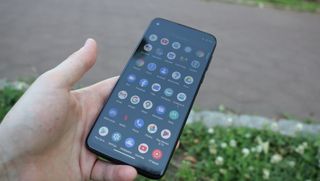
Performance
- Snapdragon 665 chipset plus 4GB of RAM
- 64GB of storage, expandable up to 512GB via microSD
- Android 10 with Moto overlay
The Moto G8 Power packs a Snapdragon 665 chipset and 4GB of RAM, which enables casual browsing, media bingeing, and game playing without any slowdown.
The phone comes in a single storage configuration of 64GB, which is pitifully low, although par for the course with budget phones, and it can at least be expanded via microSD (up to 512GB).
The Moto G8 Power runs Android 10 out of the box, giving users access to Dark Mode, Digital Wellbeing screen-time monitoring, and Smart Replies that suggest responses when you’re typing, much like those in Gmail or other Google products.
The fact it’s a Motorola phone also means the Moto G8 Power gets Motorola’s signature Android overlay, and it’s just as welcome here as it is in the brand’s other phones. While we mostly love it for the gesture shortcuts (chop-chop to turn on flashlight, twist twice to pop open the camera app, and more), we also appreciate other customization features like the option to turn off notifications while you’re gaming.
Finally, a reiteration of the slight differences between the phone versions: the Moto G Power can connect to 5Ghz WiFi (aka 5G WiFi or 802.11ac), while the Moto G8 Power cannot, and is limited to 2.4Ghz spectrums.
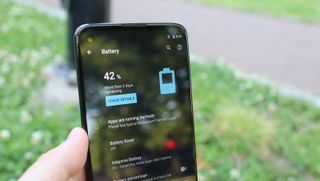
Battery life
- 5,000mAh battery easily lasts over a day, and up to two
- 10W max charging is lackluster
- No wireless charging
While it’s no longer the only feature that sets the G-series Power phones apart from other budget handsets, the G8 Power’s 5,000mAh battery is still impressive.
The phone lasts over a day, if not two, thanks in part to fewer fancy features: other phones that pack similarly large batteries – including flagships like the Samsung Galaxy S20 Plus (4,500mAh) – have their batteries drained faster by higher-resolution and faster-refresh-rate displays.
The G8 Power does, however, suffer from Motorola’s broader weakness of a slower maximum charging rate than other Android phones. It took us two hours to fully recharge it from 10% with the 10W charger included in the box, and while we’d expect it to take longer to charge this phone than one with a smaller battery, that’s still a lengthy recharge time.
And no, the phone can’t be charged wirelessly.
Should I buy the Moto G8 Power?
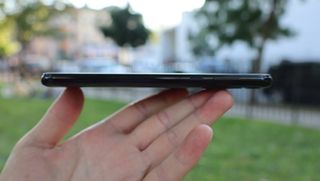
Buy it if…
You don’t want to recharge your phone too often
This is the most obvious reason to pick up a G8 Power: you want to go more than a day, and possibly two, without recharging. That’s totally feasible, although we’re less sure about Motorola’s claim of up to three days.
You want good daylight photography in a budget package
The Moto G8 Power has two more lenses than its predecessor, but it’s the quality of the shots that please us most: they’re bright, clear, and sharp. It may lack a telephoto lens, but something had to give for Motorola to be able to keep the price in genuine budget territory.
You want a flagship-looking phone at a fraction of the cost
The Moto G8 Power feels closer to a flagship phone than any of its predecessors, and while that means some classic Motorola design quirks have been left behind, we feel that it’s welcome progress.
Don’t buy it if…
You want something a bit different with your budget pick
Yes, the Moto G8 Power is one of the best budget phones Motorola has produced thus far; however, if you want something that’s near the same cost but offers more functionality, consider the Moto G Stylus.
You want a serious camera contender
The Moto G8 Power takes good photos in daylight, but if you want spectacular-looking photos in a range of conditions, and are willing to pay more for this, consider the Google Pixel 3a – or wait for its successor, the Google Pixel 4a.
You want serious performance
The Moto G8 Power has enough specs to get the job done, but if you want to really push pixels, and pay mid-range prices for the privilege, consider the new iPhone SE 2020, which has the same chipset as the iPhone 11 Pro Max, or last year’s Moto Z4.
First reviewed: June 2020
David is now a mobile reporter at Cnet. Formerly Mobile Editor, US for TechRadar, he covered phones, tablets, and wearables. He still thinks the iPhone 4 is the best-looking smartphone ever made. He's most interested in technology, gaming and culture – and where they overlap and change our lives. His current beat explores how our on-the-go existence is affected by new gadgets, carrier coverage expansions, and corporate strategy shifts.
